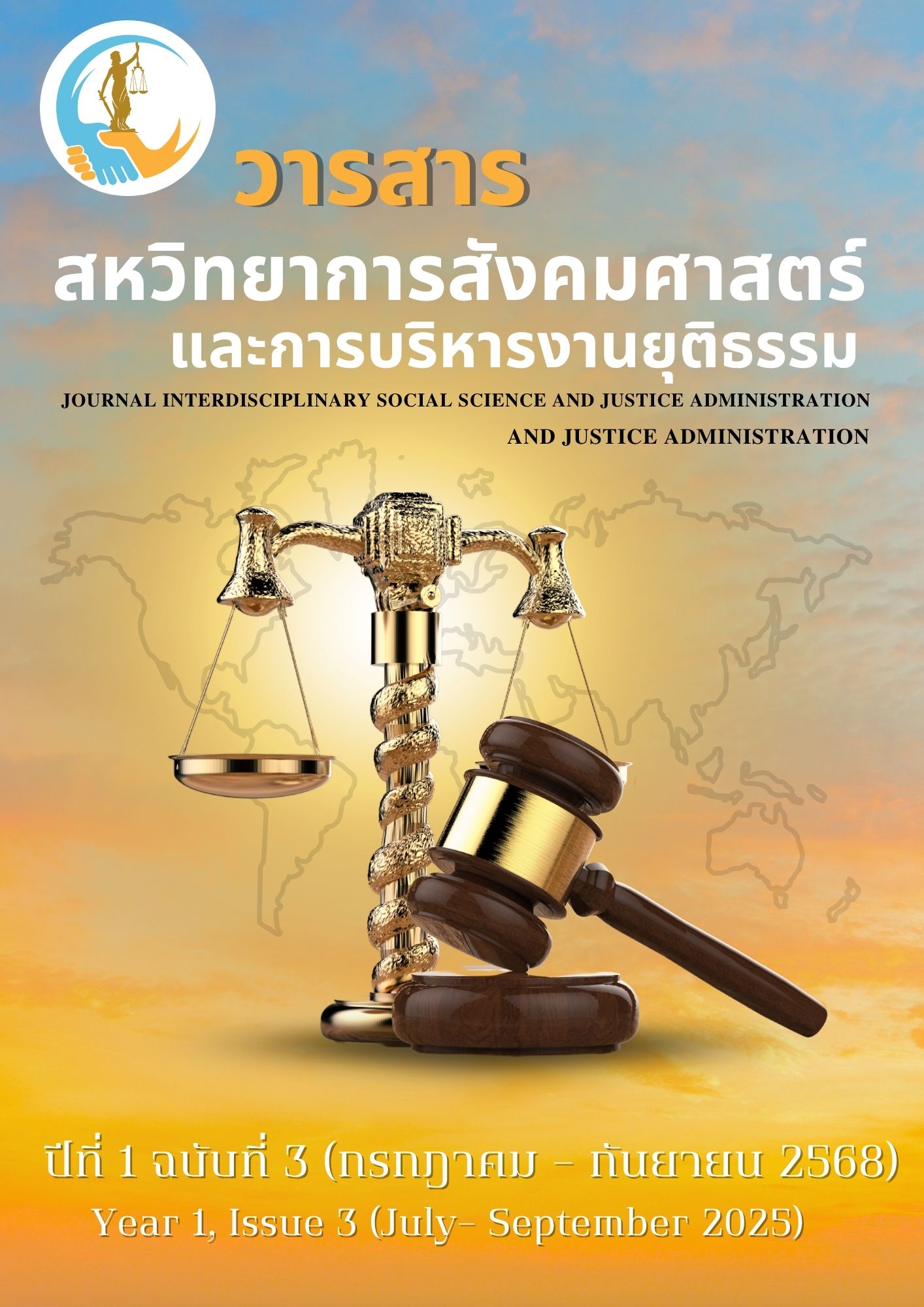การพัฒนาการเยียวยาของผู้เสียหายในคดีอาญา
Main Article Content
บทคัดย่อ
การศึกษาครั้งนี้มีวัตถุประสงค์เพื่อศึกษา 1) สภาพปัญหา แนวคิด และทฤษฎีที่เกี่ยวกับขอบเขตความเสียหายการเยียวยาของผู้เสียหายในคดีอาญา 2) กฎหมายที่เกี่ยวข้องกับการพัฒนาการเยียวยาของผู้เสียหายในคดีอาญาของต่างประเทศและประเทศไทย และ 3) เสนอแนวทางในพัฒนาขอบเขตความเสียหายการเยียวยาของผู้เสียหายในคดีอาญา เป็นการศึกษาเชิงคุณภาพ ด้วยการศึกษาค้นคว้าข้อมูลจากหนังสือ ตำรา บทความ วิชาการ งานการศึกษาเชิงคุณภาพและเอกสาร โดยนำข้อมูลมาวิเคราะห์ สังเคราะห์และใช้วิธีเรียบเรียงแบบพรรณนาความ เพื่อให้การศึกษาฉบับนี้มีความสมบูรณ์และมีส่วนช่วยพัฒนากฎหมายการเยียวยาผู้เสียหาย
ผลการศึกษาพบว่า 1) แม้ว่าประเทศไทยจะมีพระราชบัญญัติค่าตอบแทนผู้เสียหายและค่าทดแทนและค่าใช้จ่ายแก่จำเลยในคดีอาญา พ.ศ. 2544 และแก้ไขเพิ่มเติม (ฉบับที่ 2) พ.ศ. 2559 และกฎกระทรวง กำหนดหลักเกณฑ์ วิธีการ และอัตราในการจ่ายค่าตอบแทนฯ พ.ศ. 2546 เพื่อเป็นกลไกทางกฎหมายในการเยียวยาผู้เสียหาย แต่ในทางปฏิบัติกลับพบว่า ยังไม่สามารถตอบสนองต่อความต้องการของผู้เสียหายได้อย่างมีประสิทธิภาพและเป็นธรรม เนื่องจากการเยียวของไทยยังมีข้อจำกัด ซึ่งมีปัญหาประการหนึ่งที่สำคัญ คือ ปัญหาด้านขอบเขตของความเสียหายที่ได้รับการชดเชยและความล่าช้าในกระบวนการพิจารณา ซึ่งมีสาเหตุมาจากความซับซ้อนของขั้นตอนการพิสูจน์สิทธิ การประสานงานระหว่างหน่วยงานที่ขาดประสิทธิภาพ และข้อจำกัดด้านบุคลากร 2) กฎหมายที่เกี่ยวข้องกับการพัฒนาการเยียวยาผู้เสียหายในคดีอาญา ได้แก่ พระราชบัญญัติค่าตอบแทนผู้เสียหาย และค่าทดแทนและค่าใช้จ่ายแก่จำเลยในคดีอาญา พ.ศ. 2544
ผู้ศึกษามีข้อเสนอแนะ ดังนี้ การปฏิรูประบบการเยียวยาผู้เสียหายทั้งในด้านกฎหมายและกระบวนการยุติธรรมอันจะเป็นประโยชน์ต่อการพัฒนากระบวนการยุติธรรมทางอาญาของประเทศไทยให้มีประสิทธิภาพและสอดคล้องกับหลักสากล ดังนี้ (1) ด้านขอบเขตความเสียหายในการเยียวยา ควรมีการปรับขยายขอบเขตในครอบคลุมถึงด้านจิตใจด้วย โดยการปรับเพดานอัตราการเยียวยาขยายให้กว้างขึ้นเพื่อให้ครอบคลุมในทุก ๆ ด้าน (2) จัดตั้งกองทุนเยียวยาไว้โดยเฉพาะจากเงินค่าปรับและทรัพย์สินที่ริบได้จากอาชญากรรมตามแนวทางของพระราชบัญญัติคุ้มครองเหยื่ออาชญากรรม พ.ศ. 2527 (Victims of Crime Act of 1984 (VOCA)) สหรัฐอเมริกา ใช้เงินค่าปรับและเงินที่ได้จากการยึดทรัพย์ของผู้กระทำผิดมาเป็นแหล่งรายได้สำหรับกองทุนเยียวยาโดยเฉพาะ ไทยสามารถนำแนวคิดนี้มาใช้โดยจัดตั้ง “กองทุนเพื่อการเยียวยาผู้เสียหายจากคดีอาญา” ที่มีรายได้จากแหล่งถาวร (3) ส่งเสริมสิทธิของผู้เสียหายในกระบวนการยุติธรรมสหรัฐอเมริกามีการรับรอง “สิทธิของเหยื่อ” อย่างชัดเจน
Article Details

อนุญาตภายใต้เงื่อนไข Creative Commons Attribution-NonCommercial-NoDerivatives 4.0 International License.
บทความนี้ได้รับการเผยแพร่ภายใต้สัญญาอนุญาต Creative Commons Attribution-NonCommercial-NoDerivatives 4.0 International (CC BY-NC-ND 4.0) ซึ่งอนุญาตให้ผู้อื่นสามารถแชร์บทความได้โดยให้เครดิตผู้เขียนและห้ามนำไปใช้เพื่อการค้าหรือดัดแปลง หากต้องการใช้งานซ้ำในลักษณะอื่น ๆ หรือการเผยแพร่ซ้ำ จำเป็นต้องได้รับอนุญาตจากวารสารเอกสารอ้างอิง
ณรงค์ ใจหาญ. (2556). โครงการพัฒนากฎหมายและประสิทธิภาพการคุ้มครองสิทธิของผู้เสียหาย ผู้ต้องหาและจำเลยในคดีอาญาตามรัฐธรรมนูญแห่งราชอาณาจักรไทย พุทธศักราช 2550 และมาตรฐาน สากล. (รายงานฉบับสมบูรณ์ คณะนิติศาสตร์ มหาวิทยาลัยธรรมศาสตร์)
ตรีสุดา ทองสุก. (2561). การเยียวยาผู้เสียหายในคดีอาญา. การศึกษาค้นคว้าอิสระนิติศาสตรมหาบัณฑิต, มหาวิทยาลัยสุโขทัยธรรมาธิราช.
เทวราช สนโศรก. (2563). มาตรการทางกฎหมายในการเยียวยาเหยื่อผู้เสียหายในคดีอาญาและสิทธิในการได้รับการเยียวยาจากรัฐ. วารสารการศึกษามหาวิทยาลัยเวสเทิร์น มนุษยศาสตร์และสังคมศาสตร์ 6(2).
นนทวรรณ ปั้นงาม. (2556). การคุ้มครองสิทธิของผู้เสียหายในการเข้าถึงกระบวนการยุติธรรมทางอาญา. การศึกษาค้นคว้าอิสระนิติศาสตรมหาบัณฑิต, มหาวิทยาลัยสุโขทัยธรรมาธิราช.
นิเมธ พรหมพยัต. (2563). มาตรการทางกฎหมายในการเยียวยาผู้เสียหายซึ่งตกเป็นเหยื่ออาชญากรรม. วารสารมหาจุฬานาครทรรศน์ มหาวิทยาลัยปทุมธานี, 7(11).
ประสิทธิ์ จินพละ. (2561). ปัญหาทางกฎหมายเกี่ยวกบัการเยียวยาความเสียหายให้แก่จำเลยและผู้ต้องหาในคดีอาญาตามพระราชบัญญัติค่าตอบแทนผู้เสียหายและค่าทดแทนและค่าใช้จ่ายแก่จำเลยในคดีอาญา พ.ศ.2544. วิทยานิพนธ์นิติศาสตรมหาบัณฑิต, มหาวิทยาลัยบูรพา.
พรพรรณ กุศลสิทธารถ. (ม.ป.ป). ปัญหาเกี่ยวกับการเยียวยาความเสียหายแก่จำเลยในคดีอาญาตามพระราชบัญญัติค่าตอบแทน ผู้เสียหายและค่าทดแทนและค่าใช้จ่าย. การศึกษาค้นคว้าอิสระนิติศาสตรมหาบัณฑิต, มหาวิทยาลัยรามคำแหง.
รัฐธรรมนูญแห่งราชอาณาจักรไทย พุทธศักราช 2560. ราชกิจจานุเบกษา เล่ม 134 ตอนที่ 40 ก (6 เมษายน 2560)
วุฒิพงศ์ วิบูลย์วงศ์. (2549). หลักนิติธรรมกับการเยียวยาผู้เสียหายในคดีอาญา. (รายงานของการอบรม หลักสูตรหลักนิติธรรมเพื่อประชาธิปไตย รุ่นที่ 1 วิทยาลัยรัฐธรรมนูญ สำนักงานศาลรัฐธรรมนูญ).
ศรันยา สีมา. (2562). ค่าตอบแทนผู้เสียหายในคดีอาญา. รายการร้อยเรื่อง เมืองไทย สถานีวิทยุกระจาย เสียงรัฐสภาและสำนักวิชาการ สำนักงานเลขาธิการสภาผู้แทนราษฎร.
แสงเทียนน้อย คะสา. (2564). การคุ้มครองสิทธิของผู้เสียหาในคดีอาญา : ศึกษาการแจ้งข้อมูลเกี่ยวกับการดำเนินคดีอาญา. วิทยานิพนธ์นิติศาสตรมหาบัณฑิต, มหาวิทยาลัยธุรกิจบัณฑิตย์.
อริยพร โพธิใส. (2552). สิทธิในการได้รับการเยียวยา จากรัฐของผู้เสียหายและจำเลยในคดีอาญา. จุลนิติ, 6(1).
General Assembly resolution 2200A (XXI). (1976). International Covenant on Civil and Political Rights. Retrieved January 12, 2025, from https://www.ohchr.org/en/ins truments-mechanisms/instruments/international-covenant-civil-and-political-rights
Quakersintheworld. (n.d.). Margery Fry. Retrieved January 12, 2025, from https://www. quakersintheworld.org/quakers-in-action/84/Margery-Fry
R. Morgan. (2016). What is Victimology and Why Is It Important in Forensic Psychology. Retrieved January 12, 2025, from https://www.waldenu.edu/online-masters-pro grams/ms-in-forensic-psychology/resource/what-is-victimology-and-why-is-it-important-in-forensic-psychology
U.S. Department of Justice, Office for Victims of Crime. (n.d.). Victims of Crime Act (VOCA) Fact Sheet. Retrieved January 12, 2025, from https://ovc.ojp.gov


